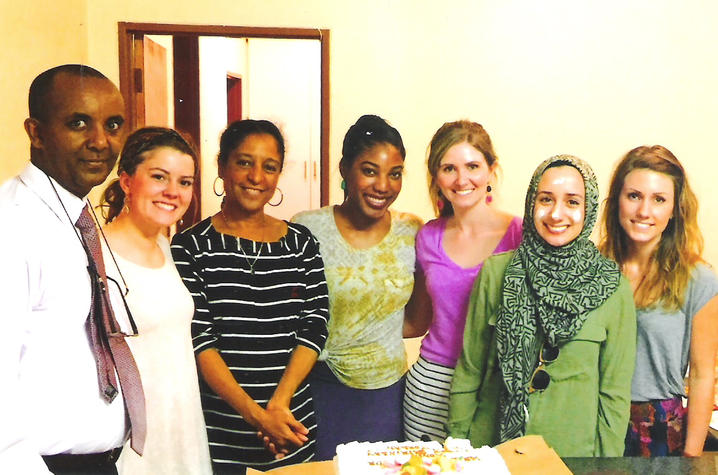UK Physician Assistant Students Learn in Swaziland

LEXINGTON, Ky. (April 15, 2016) – The Community Faculty Program at the University of Kentucky College of Medicine hosted its 22nd Annual Community Faculty Conference for community faculty, campus faculty colleagues, administration, professional staff and regional Area Health Education Center (AHEC) staff April 8-9. But some people may be surprised by the distance some community faculty travel for the conference and the chance to meet their UK colleagues in person.
Dr. Pawelos Beshah from Swaziland, a small landlocked African nation, attends the conference each year. Beshah serves as a preceptor in the physician assistant program and volunteers to provide medical education to students from the College of Health Science who travel to the his homeland, providing a unique experience for these students.
In January 2016, six UK students spent several weeks being trained at Releigh Fitkin Memnia, Beshah's home hospital. Students who are passionate, skilled and knowledgeable get hands-on experience and some may be allowed to see patients on their own and take on some of the workload. Though Beshah works in the pediatric department, he gives students the chance to explore other specialties, including emergency medicine, where they experience a variety of health issues caused by accidents and traumas. Students also spend time in the operating room (OR) gallery, watching surgeries and occasionally assisting surgeons. Students get experience in an inpatient and outpatient setting.
Students who travel to Swaziland to complete their rotation, have an opportunity to work with patients with unique needs and illnesses. As of 2012, Swaziland had the highest HIV/AIDS infection rate in the world, with 25.8 percent of the population diagnosed with the disease. This population is affected by unique complications and HIV-related conditions that many medical students don't experience in the U.S. In addition to health disparities that provide unique patients, students also experience a culture very different than their own. The population of Swaziland is overwhelmingly Christian, however, there is a different family structure, many people in the state practice polygamy. Doctors must navigate any family turmoil created by this arrangement.
Beshah says he appreciates having the opportunity to contribute to the United States by helping train new doctors. He also believes he gets just as much out of volunteering his time as the students. "When you teach, you learn twice," he said. For the past 10 years Beshah has had the opportunity to learn many skills twice and has helped train about two dozen UK students.
UK is the University for Kentucky. At UK, we are educating more students, treating more patients with complex illnesses and conducting more research and service than at any time in our 150-year history. To read more about the UK story and how you can support continued investment in your university and the Commonwealth, go to: uky.edu/uk4ky. #uk4ky #seeblue
Media Contact: Olivia McCoy, olivia.mccoy1@uky.edu, 859-257-1076




